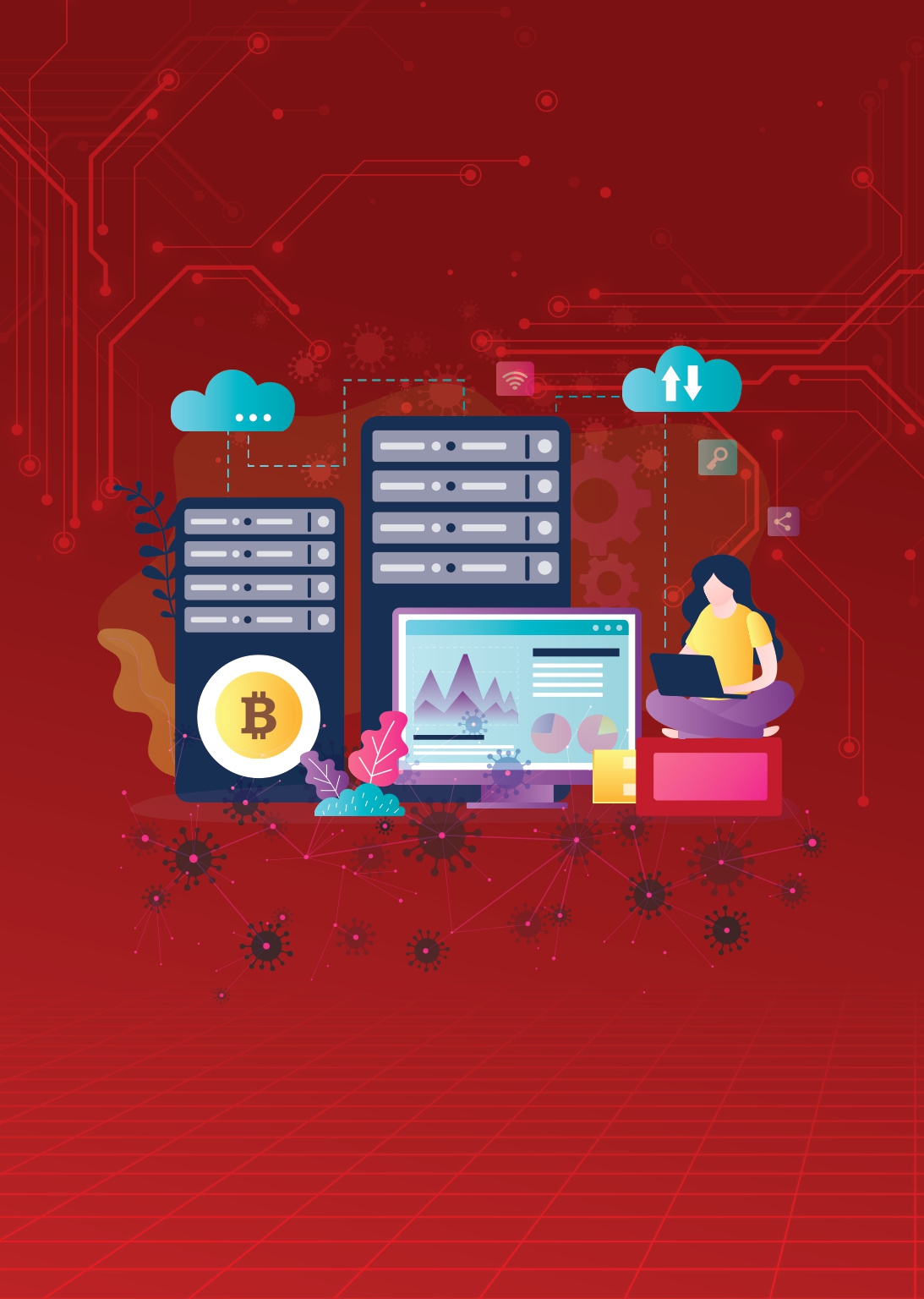Factors Affecting Willingness to Pay for Fixed Broadband Internet Service during COVID-19 Pandemic
Keywords:
Willingness to pay, Fixed broadband internet, COVID-19, Unlicensed ban, Multiple linear regressionAbstract
Fixed broadband internet via Wi-Fi connection has been drastically increasing in Thailand. This research studied factors affecting the willingness to pay for fixed broadband internet during the COVID-19 pandemic. Household samples from various regions of Thailand were surveyed and analyzed by using multiple linear regression. Three main variables included the demographic characteristics, internet connection device, and changing in internet usage due to the COVID-19 pandemic. The study revealed that the three variables contributed to higher willingness to pay. An increasing in willingness to pay indicated that the society enjoyed more benefits from unlicensed ban, in particular for the users. Therefore, regulators should promote free and fair competition, while regulate on service fees. At the same time, usage monitoring of unlicensed ban should be intensified so that better services can be provided to consumers.
References
กระทรวงสาธารณสุข. (2564). สถานการณ์โรคติดเชื้อไวรัสโคโรนา 2019 (COVID-19): มาตรการสาธารณสุขและปัญหาอุปสรรคการป้องกันควบคุมโรคในผู้เดินทาง. https://ddc.moph.go.th/uploads/files/2017420210820025238.pdf
ธันวา แผนสท้าน. (2563). พฤติกรรมเอนเอียงในการเลือกใช้รูปแบบอินเทอร์เน็ตเคลื่อนที่ระหว่างระบบรายเดือนกับระบบเติมเงินในประเทศไทย. วารสารเศรษฐศาสตร์ประยุกต์, 27(1), 127-156.
ธันวา แผนสท้าน. (2564). ปัจจัยที่มีผลต่อการใช้ง่ายเน็ตประชารัฐในปีที่มีการแผ่ระบาดของโควิด-19 ในประเทศไทย. วารสารสมาคมนักวิจัย, 26(4), 124-141.
ประกาศสำนักงานคณะกรรมการกิจการกระจายเสียง กิจการโทรทัศน์ และกิจการโทรคมนาคมแห่งชาติ. เรื่อง หลักเกณฑ์การใช้คลื่นความถี่และเครื่องวิทยุคมนาคมที่อนุญาตให้มีการใช้งานเป็นการทั่วไป พ.ศ. 2562. (2562, 26 ธันวาคม). ราชกิจจานุเบกษา. เล่ม 136 ตอนพิเศษ 315 ง. หน้า 4-5.
สำนักงานคณะกรรมการกิจการกระจายเสียง กิจการโทรทัศน์ และกิจการโทรคมนาคมแห่งชาติ. (2564). ศูนย์ข้อมูลกลาง ฐานข้อมูลอุตสาหกรรมโทรคมนาคม. http://ttid.nbtc.go.th/
สำนักงานพัฒนาธุรกรรมทางอิเล็กทรอนิกส์ กระทรวงดิจิทัลเพื่อเศรษฐกิจและสังคม. (2563). รายงานผลการสำรวจพฤติกรรมผู้ใช้อินเทอร์เน็ตในประเทศไทยปี 2563 (รายงานการวิจัย). สำนักงานพัฒนาธุรกรรมทางอิเล็กทรอนิกส์ กระทรวงดิจิทัลเพื่อเศรษฐกิจและสังคม.
สำนักงานสถิติแห่งชาติ. (2563). สรุปผลที่สำคัญ: สำรวจการมีการใช้เทคโนโลยีสารสนเทศและการสื่อสารในครัวเรือน พ.ศ. 2563. สำนักงานสถิติแห่งชาติ กระทรวงดิจิทัลเพื่อเศรษฐกิจและสังคม.
สำนักงานสถิติแห่งชาติ. (2564). ข้อมูลสถิติที่สำคัญ. ข้อมูลสถิติที่สำคัญระดับประเทศ ภาคและจังหวัด. http://statbbi.nso.go.th/staticreport/Page/th/index.aspx
Dutz, M. A., Orszag, J. M., & Willig, R. D. (2012). The Lift off of Consumer Benefits from the Broadband Revolution. Review of Network Economics, 11(4), 1-34.
Galperin, H., & Ruzzier, C. A. (2013). Price Elasticity of Demand for Broadband: Evidence from Latin America and the Caribbean. Telecommunications Policy, 37(6-7), 429-438.
Google. (n.d.). Help Center. Fix a Problem: Watch Video. https://support.google.com/youtube/ answer/78358?hl=en
Katz, R. (2009). Estimating Broadband Demand and Its Economics Impact in Latin America. In Proceedings of the 3rd ACORN-REDECOM. Mexico City.
Robitzsch, A. (2020). Why Ordinal Variables Can (Almost) Always Be Treated as Continuous Variables: Clarifying Assumptiions of Robust Continuous and Ordinal Factor Analysis Estimation Methods. Frontiers in Education. https://doi.org/10.3389/feduc.2020.589965
Sudtasan, T., & Mitomo, H. (2016). Effects of OTT Services on Consumer's Willingness to Pay for Optical Fiber Braodband Connection in Thailand. In 27th European Regional Conference of the International Telecommunications Society (ITS): "The Evolution of the North-South Telecommunications Divide: The Role for Europe". International Telecommunications Society (ITS)
Thailand Board of Investment. (2020). Thailand Investment Review: Smart Electromics, The Foundation of Smart Industries. Thailand Board of Investment.
Varian, H. R. (2014). Intermediate Microeconomics: A Modern Approach. W. W. Norton & Company.
Wi-Fi Alliance. (2021). The Economic Value of Wi-Fi: a Global View (2021-2025). Wi-Fi Alliance.
Wi-Fi Alliance. (2022). Press Releases. Wi-Fi Alliance® 2022 Wi-Fi® trends. https://www.wi-fi.org/news-events/newsroom/wi-fi-alliance-2022-wi-fi-trends
World Health Organization. (2021). WHO Thailand Situation Report. World Health Organization. Retrieved from https://www.who.int/docs/default-source/searo/thailand/2021_01_12_tha-sitrep-122-covid19.pdf?sfvrsn=6a1bb73d_16

Downloads
Published
How to Cite
Issue
Section
License
Copyright (c) 2022 NBTC Journal

This work is licensed under a Creative Commons Attribution-NonCommercial-NoDerivatives 4.0 International License.
The Office of the NBTC holds the copyright of articles appearing in the journal. The Office of the NBTC allows the public or individuals to distribute, copy, or republish the work under a Creative Commons license (CC), with attribution (BY), No Derivatives (ND) and NonCommercial (NC); unless written permission is received from the Office of the NBTC.
Text, tables, and figures that appear in articles accepted for publication in this journal are personal opinion and responsibility of the author, and not binding on the NBTC and the Office of the NBTC. In case of errors, each author is solely responsible for their own article, and not concerning the NBTC and the NBTC Office in any way.


